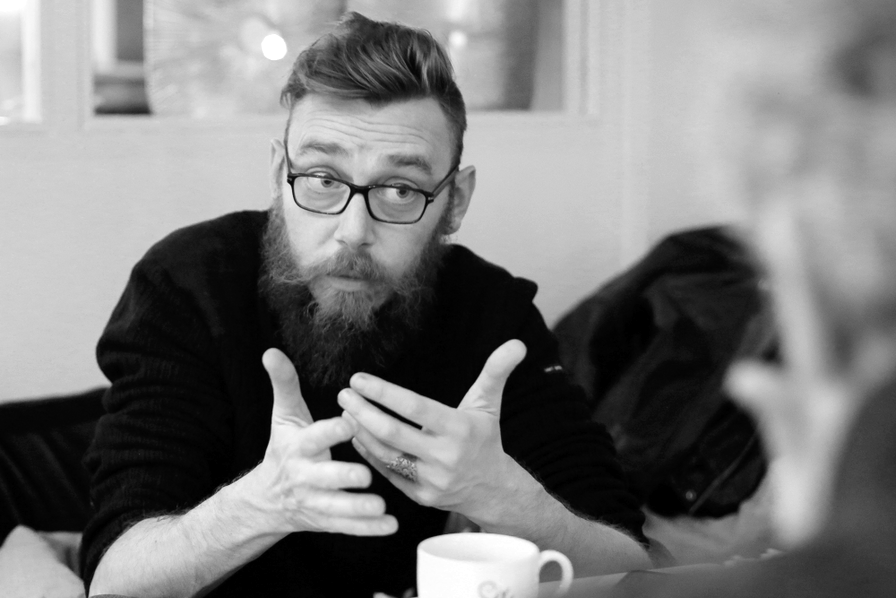
Image courtesy of L’Usine Nouvelle
It is a rare thing indeed to be entrusted with the translation of such a startlingly original work as Joseph Ponthus’s À la ligne.
It is a work that bears reading and re-reading. A work that stays with you.
Unable to find work in his chosen field, Joseph Ponthus enlisted with a temp agency and started to pick up casual shifts in the fish processing plants and abattoirs of Brittany. On the Line – Notes from a factory is his attempt not just to record but to process the horror of what he witnessed, to accord it some meaning, to allow him to find its place not only in his own mind but also to invite us, his readers, to bear witness to the monotony of the processing machine, the broken bodies it leaves in its wake, while inviting us into the dark recesses of the mind where the human spirit is struggling to adapt, hoping perhaps to survive.
French author Céline Curiol writes in her recently published novel Les Lois d’Ascension (Actes Sud, 2021) that ‘nobody can survive without imagination…’, and Ponthus’s extraordinary work might be understood as the author’s attempt to imagine his survival in these most inhuman of environments, through his writing.
We are allowed a way in, if you like, through Ponthus’s title, À la ligne, a clever double entendre referencing not only the production line but also his persistent ‘return’ to a new line with each new phrase, eschewing punctuation.
Ponthus returns to a new line, as he returns to the factory, producing a rhythm that matches the relentlessness of the production line. Yet it is a technique that also allows the creation of a visual space on the page which, in turn, might be seen as reflecting that place of grace, that mental and spiritual retreat which somehow allows us to preserve our humanity and continue to engage when confronted with such challenging circumstances.
In a film shown at a recent retrospective of her work at the Museum of Contemporary Art in Sydney, artist Lindy Lee comments—and I paraphrase—that the brain only knows what it knows. As humans we are constantly trying to make sense of, to process, our environment. Perhaps the very essence of the human condition, the human contradiction, is the fact that the human mind is capable of reeling before the beauty of Apollinaire’s words, before the wonder that is Bach’s St Matthew Passion, and yet may still be called upon to reconcile not only body but mind with the horror inflicted by wars, with the mindlessness of work on the production line, with the slaughter being carried out in our abattoirs. While compelling us to acknowledge the imperatives involved in the human processing of other animals, Ponthus also forces us to engage with the underlying inhumanity of our exploitation of human capital in this process. His gaze is uncompromising, his words remind us of our complicity.
As a translator, one is also constantly called upon to challenge what it is the brain knows. Our mind is constrained by the familiar, and yet we must suspend our disbelief and attempt not only to hold a mirror to the words, but to record the shifting rhythm and acoustics of rage and exhaustion, of humour and pathos, of dignity and indignity. And, in this work more than most, the sound of our (in)humanity.
In an inconceivably tragic turn, Joseph Ponthus died earlier this year at the brutally young age of 42. Fortunately, he lived to see the recognition awarded him in France for this unflinching and original work. À la ligne was awarded the Grand Prix RTL-Lire, the Prix Eugène Dabit du roman populiste, and the Prix Régine Deforges, among others.










Pingback: החירות המעטה מתקיימת כשנשאר זמן לשיר – ספרים באוטובוסים